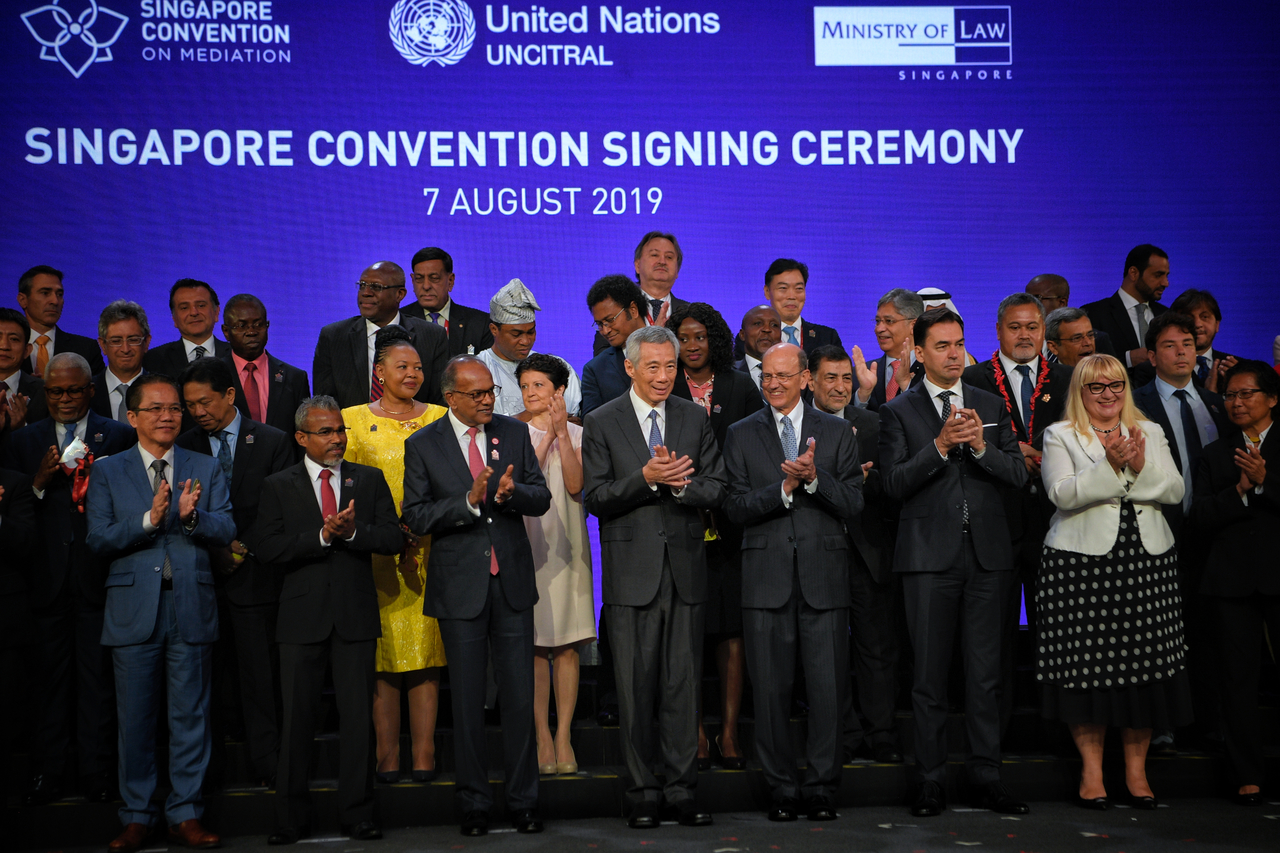Parliament: New Bill aims to strengthen Singapore's offerings as dispute resolution hub
Sign up now: Get ST's newsletters delivered to your inbox

(First row, third from left) Law and Home Affairs Minister K Shanmugam, Prime Minister Lee Hsien Loong and UN Assistant Secretary-General for Legal Affairs Stephen Mathias in a group picture with signatories and heads of delegations after the signing of the Singapore Convention on Mediation on Aug 7, 2019.
PHOTO: ST FILE
Calvin Yang
Follow topic:
SINGAPORE - A new Bill that will boost Singapore's position as a leading global dispute resolution hub was introduced on Monday (Jan 6), allowing parties in cross-border commercial disputes to seek various options to enforce or invoke their mediated settlement agreements.
The Singapore Convention on Mediation Bill, tabled for its first reading in Parliament by the Ministry of Law (MinLaw), seeks to implement the country's obligations under the United Nations Convention on International Settlement Agreements Resulting from Mediation, also known as the Singapore Convention on Mediation.
This international treaty has been signed by 51 countries and aims to promote the use of mediation in settling cross-border commercial disputes.
When passed, the Bill will strengthen Singapore's offerings as a leading global dispute resolution hub, providing "a full suite of options for commercial parties to resolve their cross-border disputes, whether through litigation, arbitration or mediation", MinLaw said in a statement.
The use of mediation to resolve cross-border commercial disputes - instead of embarking on legal battles - reduces the risk of souring and termination of commercial relationships.
However, ensuring the other party complies with the mediated settlement agreement has often been cited as a challenge. This comes as such an agreement - unlike a court judgment or an arbitral award - is only binding contractually and, therefore, not directly enforceable in the courts.
The Singapore Convention puts in place a process for a company to more easily enforce or invoke the contract in a country which is a party to the Convention.
The proposed Bill will allow a party such as an overseas company to apply to the Supreme Court here to enforce an international settlement agreement with its counterpart, or invoke the agreement to prove that a matter had already been resolved when defending court proceedings in Singapore. An overseas company can apply to the Supreme Court to enforce or invoke an international settlement agreement against counterparts from any other country as well, as long as requirements under the Bill are fulfilled.
The Bill offers the parties different ways of making enforcement or invocation applications under the Convention, such as applying to the High Court to record the agreement as a court order, said MinLaw, adding that existing contractual remedies are also preserved.
The ministry noted that the availability of options offers "flexibility to parties to decide on the most appropriate mode for their circumstance, and saves them time and costs".
Other provisions in the Bill include the requirements that a party must satisfy before the court will consider approving an enforcement or invocation application, and provisions on which the court may consider in refusing such an application.

